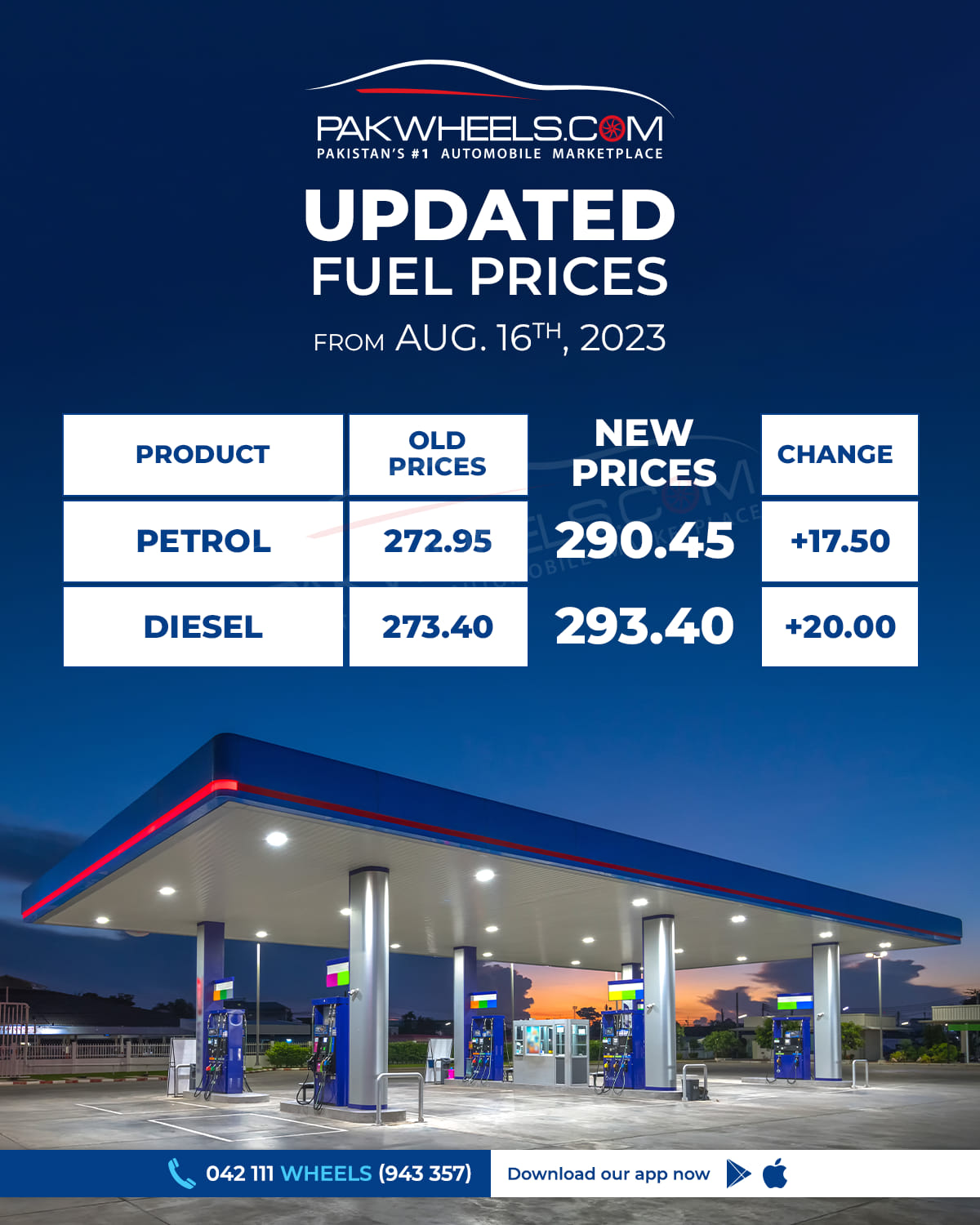
[ad_1]
In a sudden move, the caretaker government has unleashed a hefty blow to the wallets of Pakistani motorists. As the clock struck midnight on Tuesday, a substantial increase of nearly Rs. 17.50 in petrol price and Rs. 20 in high-speed diesel prices was announced. The new petrol price now stands at Rs. 290.45 while the high-speed diesel price is now Rs. 293.40 per liter. This jarring surge follows a similar price escalation of Rs. 20 initiated by the previous government just two weeks ago.
 International Market Impact
International Market Impact
The decision to crank up fuel costs was attributed to the rippling effects of international oil prices. The Finance Division, responsible for the announcement, highlighted the escalation in petroleum rates on the global stage as the driving force behind the local surge. As the world markets experienced an upward trajectory in petroleum prices, Pakistan felt the aftershocks and subsequently, consumer petrol prices were deemed ripe for a revision.
New Government, New Petrol Prices
The latest adjustment in fuel prices marks the first such modification under the stewardship of the caretaker government led by Anwaarul Haq Kakar, who took the reins as the caretaker prime minister merely a day ago. The Finance Division’s notification clarifies that these new rates will become effective from August 16, ushering in a new era of pricier fuel for Pakistani consumers.
— Ministry of Finance (@FinMinistryPak) August 15, 2023
The IMF Deal & Petrol Price
Pakistan’s decision to impose a petroleum levy of up to Rs. 50 per liter aligns with an accord inked with the International Monetary Fund (IMF) as part of a larger bailout package. The IMF, as a lifeline for the country’s economic stabilization, approved a substantial $3 billion nine-month standby arrangement last month. This financial infusion is intended to bolster Pakistan’s economic health and navigate the challenging terrain of stabilization.
The IMF’s executive board gave the nod to this bailout package, granting Pakistan a financial cushion of $2.25 billion in Special Drawing Rights (SDRs). These SDRs act as reserve funds, nourishing the financial capacities of IMF’s member nations. This infusion constitutes around $3 billion or a formidable 111% of Pakistan’s allocated quota. The IMF’s affirmative stance underscores the gravity of Pakistan’s economic landscape and the importance of international intervention.
[ad_2]